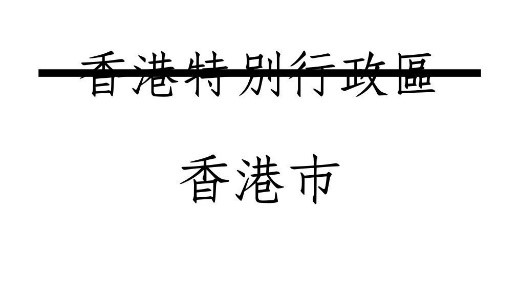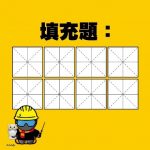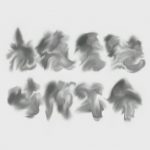

Hong Kong City
Source: Unattributed graphic from HK protest Telegram channel
An hour before Midnight
One hour before midnight on 30 June 2020 the Law of the People’s Republic of China on Safeguarding National Security in the Hong Kong Special Administrative Region (the National Security Law, NSL for short) came into effect. Less than 7 weeks since it was first proposed by the National People’s Congress and without a draft even being seen by HK Chief Executive Carrie Lam the law has to many put a final nail in the coffin of the One Country Two Systems (1C2S) framework which promised Hong Kong a high degree of autonomy. And with the end of 1C2S HK becomes just like any other city within China, no longer a distinctly different place, hence the opening graphic which was posted on a local Telegram protest channel.
For weeks Carrie Lam and a cast of senior officials and business elites spoke out at how the Hong Kong people should trust in the Communist Party and that the law was intended to target only a very few people and restore calm to the city. By the time though the final text was published even some of the NSL’s strongest local supporters had to admit that it was harsher than they had expected. Trusting the CCP was not such a sure thing after all.
All countries require laws to protect national security, in that regard the PRC and HK by extension are no different. The HK Basic Law explicitly states that HK will enact such laws on its own. Even allowing for the overreach of the Mainland authorities the real concern is how the CCP uses such laws within the Mainland to stifle dissent and now how the extremely broad ranging yet vaguely defined NSL for HK now allows for a dramatic erosion of the political and personal freedoms that HK residents have enjoyed. The law is so draconian in parts that the Australian government has even gone as far to issue a travel warning against Australians travelling to HK and advising Australians already there to reconsider their safety.
Last month in GRICI 1442 it was suggested that protest graphics could become illegal under the new law. This has effectively happened. In a July 2 press release the HK government stated: “The slogan “Liberate Hong Kong, the revolution of our times” nowadays connotes “Hong Kong independence”, or separating the Hong Kong Special Administrative Region (HKSAR) from the People’s Republic of China, altering the legal status of the HKSAR, or subverting the State power.” Further releases went on to ban the singing in schools of Glory to Hong Kong, a popular HK protest “anthem” along with any other sort of political display. Libraries started to remove books by prominent HK dissidents and democracy activists even though they were written and published years ago. The inventive HK protest movement started to hold up blank pieces of paper of paper with spaces for the 8 characters of their Liberate Hong Kong slogan yet even blank paper invokes the wrath of the police. The law has re-energized the police force and 10 people were arrested for offences under the law on the first day it went into force. The police even arrested a young boy for having a sticker with the slogan on this mobile phone.
Reasons to worry
The law is broader and harsher than even HK’s Beijing supporters had expected. No aspect of HK civil society is immune. Specific articles cover schools, universities, and the media. The four key offences targeted by the law are, Secession, Subversion, Terrorist offences, and Collusion with a foreign country or external elements to endanger national security. The definition of these offences is very broad in nature but more importantly, as countless examples from Mainland China show, the authorities in Beijing will happily bend the meaning of words to suit their ends. Any criticism of the Party, of Xi Jinping, or the policies of the Party-State could be caught by such broad terms. In fact, the offences need not even be carried out in HK or indeed have any impact in HK. Article 38 provides for global reach so that any critic of the Party could be at risk by transiting via HK, which before the Covid19 pandemic was one of the largest international crossroads within Asia. The Party is clearly worried about HK being used as a base for any form of dissent and criticism of the Party and wants to banish and quieten all voices from even transiting through the city. So much for the promise that the law targets only a small minority in HK when anyone in the world could be caught by it.
A lot of attention has also been paid to the establishment of an office in HK directly under the control of the Central Government in Beijing as per Article 48 of the Law. This office is explicitly outside the oversight of HK police and legal system. By operating outside of the Mainland proper it is outside the jurisdiction of the PRC Mainland criminal law as well, it truly does appear to operate above the law. This runs totally counter to the common law checks and balances which HK people expect. Yet the almost James Bond like “00” status of those working in the Office of Safeguarding National Security may distract observers from the extensive powers which have been granted to the established and fully operational HK Police Force under Article 43. This article gives very much enhanced powers to the police in areas of search of property and electronic devices, it provides for seizing or freezing of assets, the ability to force the provision of information and the power to delete or amend information posted online. These powers are extremely worrying. Appeals that all countries face terrorist threats or other countries have such rules ring hollow when the scope of threats in HK include school children singing songs or the holding up of a blank piece of paper! With the Central Government in control of the legislation then there is no reason to trust that the words and powers of the law will not be abused to go after Party and government critics.
Protesting by saying nothing at all
Over the past year “Lennon Walls” made up of post-it notes expressing messages of support for the HK anti-government protests have sprung up all around HK in public spaces and private shops. Some shops have rushed to take them down following the introduction of the new law. Online and offline protest slogans have continued by saying nothing at all!
Source: Unattributed graphic from HK protest Telegram channel
Business but not as usual
A key mantra of the HK government is that this law will restore stability to the city allowing normal business to resume and indeed both privately and publicly some companies have welcomed the law. Those claiming that the new law will finish off HK are only partly right at this time. The mechanics of business and day to day operations can operate just as efficiently now as before the law was introduced. This is especially true in the financial sector which is HK largest and only real growth area in the economy. As Chinese domestic markets genuinely open more to foreign investors, and as Chinese companies find the US a more hostile place to list, HK is benefiting from a string of new listings and increased trading volume via the Connect framework which routes orders for Mainland listed stocks via the HK Exchange trading system. In the first 6 trading days following the introduction of the law around 9 billion USD flowed into Chinese markets out of a total turnover via the Connect framework of 138 billion USD. Despite all of the concerns, business is booming.
Yet no individual or business should be comfortable about the new law. For those who think that business and politics can be completely separated then the experiences of corporate giants Cathay Pacific and HSBC should serve as a warning. Companies ultimately are made up of individuals who have the right of free expression in HK, so how will companies react when their staff take part in peaceful protest which is then defined as endangering national security? The powers mentioned above in Article 43 have already sent a chill down the spines of tech companies with a number already saying they will suspend sharing information with the HK authorities until the implementation of the law becomes clearer. The popular short video app TikTok has already announced it will pull out of the HK market and walked away from a multi-year rental agreement in Causeway Bay although the company owner, PRC incorporated Bytedance, may simply replace the Tiktok app with the Douyin app which is effectively the PRC version. The underlying question is simply will the Great Firewall come to HK? Not in exactly the same blunt way as in the PRC but greater censorship is coming to HK and the first steps have been taken.
International Response
The introduction of the NSL has seen the US, UK, Australia and Canada all follow through with selected measures to pressure China or at least show China that there is a tangible cost to reneging on its promises. The UK, as signatory to the Joint Declaration has promised that up to 3 million HK residents who were eligible for a British BNO passport will be welcome in the UK and that full citizenship is possible. Whether China will even allow BNO holders to leave HK isn’t even clear at this stage as the NSL provides for restrictions on exiting HK. Australia and Canada have both suspended their extradition treaties with HK due to the NSL providing for the extradition of suspects to China for trial under PRC laws. The US suspended the special trading status of HK and is potentially going to invoke sanctions against certain individuals in the HK government or even target the HKD-USD peg. The threat of such sanctions cuts right to the heart of the business community of HK as the US will look to penalize banks which deal with the individuals named in the sanctions. That could see some of China’s leading banks or even global banks being cut off from the dollar clearing system, a devasting impact for any firm with global business. Such risks are not to be dismissed as sanctions have just been announced on the PRC officials in charge of the Xinjiang province where the State has illegal detained millions of their own citizens. The Trump administration is worryingly unpredictable and untrustworthy at times, yet it deserves full credit for making such a move.
Article 29 of the NSL makes it clear that any company or individual which helps impose sanctions on the HKSAR or the PRC will be guilty of an offense under the law. This leaves banks and other businesses having to choose between obeying Chinese law or American law. HK is where companies are being forced to decide which side they are on.
“Harmony”
If one thing is certain it is that HK’s future is going to look very different from its past. The open and vibrant city which was a leader and trend setter for much of the Chinese world will change for the worst. The city may in the coming years bounce back from the economic impacts of the year of protests and of Covid19 but so much of what made HK different and special from China will be eradicated. The city is being “harmonized” with Chinese characteristics. Obedience to the Party will become the primary goal for those who want to succeed. Business will continue, after all there is plenty of business being done within the PRC which operates under just as harsh political and social constraints, but HK’s global role and regional role will diminish. The new law hopes to frighten the people of HK into submission, it will succeed for many but other will continue to fight and resist. It is hard now to think that millions will again take to the streets to protest against the government, but HK’s future remains highly uncertain. In the coming months and weeks the CCP may find that HK is indeed a destabilizing influence back into the Mainland, but not because of foreign forces acting through HK but because of the Party’s own missteps and overreach as it squashs the hopes and dreams of millions of Hongkongers.
カテゴリー
最近の投稿
- 習近平の思惑_その3 「高市発言」を見せしめとして日本叩きを徹底し、台湾問題への介入を阻止する
- 習近平の思惑_その2 台湾への武器販売を躊躇するトランプ、相互関税違法判決で譲歩加速か
- 習近平の思惑_その1 「対高市エール投稿」により対中ディールで失点し、習近平に譲歩するトランプ
- 記憶に残る1月
- 高市圧勝、中国の反応とトランプの絶賛に潜む危機
- 戦わずに中国をいなす:米国の戦略転換と台湾の安全保障を巡るジレンマ
- トランプ「習近平との春節電話会談で蜜月演出」し、高市政権誕生にはエール 日本を対中ディールの材料に?
- A January to Remember
- Managing China Without War: The U.S. Strategic Turn and Taiwan’s Security Dilemma
- 「世界の真ん中で咲き誇る高市外交」今やいずこ? 世界が震撼する財政悪化震源地「サナエ・ショック」







